Named in honor of Ada Lovelace, TAP is a clearinghouse for information and resources related to women in computing. It includes publications, conferences, employment resources, fellowships and grants, news, organizations, plus projects and programs.
An artificial intelligence resource listing containing links to information on intelligent agents; search and game playing; logic and knowledge representation; planning, reasoning and uncertainty; machine learning; natural language processing; perception and robotics; philosophy and the future; and AI programming.
AI Topics is a starting point for finding information on artificial intelligence. This AAAI site links to basic information along with news, education resources, reference materials (dictionaries, encyclopedias, handbooks, and journals), courses, forums, and career information.
This portal to resources on robots, intelligent agents, and macros is a Subject Trace Information Blog developed and maintained by Marcus Zillman. It is designed to provide access to current resources on the Internet. A Subject Tracer is a blog that uses bots to find, analyze, collect, and update information. The resources are alphabetically arranged; there are no annotations.
Cetus Links is portal to several thousand Internet sites about object-orientation and component-orientation. It is divided into seven main areas: general information; distributed objects and components; Internet and intranets; architecture and design; languages and development environments; databases and repositories; and related topics. The main areas are further divided into subject pages. There is an overview page for each of the main area pages and an introductory statement on the individual subject pages. The individual subject pages contain a variety of links to resources like articles, bibliographies, books and publications, conferences and meetings, FAQs, forums, glossaries, libraries, newsgroups, organizations, people, software, standards, starting points, tools, tutorials, and utilities. Cetus Links is also fully searchable.
A metasite providing access to Web-based and print resources dealing with computational geometry including links to research groups, forums, bibliographies, job announcements, books, journals, and software resources.
Established at Carnegie Mellon University in 1994, this portal collects important resources for computer vision research. Resources are classified into the following categories: vision groups, hardware, software, demos, test images, conferences, publications, general information, and related links. This site also has a search capability.
Cryptography Links provides access to resources on Internet security, government policy, legal policy, nonprofit organizations, protocols, researchers, tutorials, and miscellaneous resources.
This portal to data mining resources is a Subject Tracer Information Blog developed and maintained by Marcus Zillman. It is designed to provide access to current resources on the Internet. A Subject Tracer is a blog that uses bots to find, analyze, collect, and update information. The resources are alphabetically arranged; there are no annotations.
This site serves as portal for resources on ethics in computing. Starting with the basics like the principles and codes of ethics from various associations, it also provides access to materials on commerce, computer abuse, privacy, risks, social justice issues, and speech issues.
An extensive collection of links to information on genetic programming, genetic algorithms, artificial intelligence, evolutionary computation, and robotics. It includes access to bibliographies, books, software, people, groups, journals, conferences, courses, tutorials, and news.
This portal to grid and distributed computing resources is a Subject Tracer Information Blog developed and maintained by Marcus Zillman. It is designed to provide access to current resources on the Internet. A Subject Tracer is a blog that uses bots to find, analyze, collect, and update information. The resources are alphabetically arranged; there are no annotations.
HOPL: An Interactive Roster of Programming Languages
HOPL is an encyclopedia of computer languages. It tracks the evolution, history, function, and relationships among computer languages. Covering over 8,500 languages, HOPL is fully searchable with basic and advanced search modes. Bibliographic references and links to other programming language Websites are also included.
ITPRC is a gateway to information relating to data networking, its technologies and operations. Access is also provided to networking books, trade shows, jobs, training, certification, news, and there is section with links to Internet guides. The site may be browsed or searched.
Intute provides access to quality Internet resources. The computing section may be browsed by the following subjects: computing milieux, hardware, computer systems organization, software, data, theory of computation, mathematics of computing, information systems, computing methodologies, computer applications, and general. Intute is also searchable.
This portal to knowledge discovery, retrieval, and management, and data mining resources is a Subject Tracer Information Blog developed and maintained by Marcus Zillman. It is designed to provide access to current resources on the Internet. A Subject Tracer is a blog that uses bots to find, analyze, collect, and update information. The resources are alphabetically arranged in three subject categories; there are no annotations.
This Web site is gateway to resources on the history of the Internet, including applications, platforms, and protocols. It also contains links to historical resources for computers, the World Wide Web, and email, as well as national and regional Internet histories. A monthly Internet history newsletter is also available.
Focusing on programming language research, this portal covers programming language theory, design, implementation, and related areas. It provides access to language overviews, research groups and institutes, individual researchers, journals, books, publishers, conferences and workshops, and bibliographies. There is also a collection of links to related subject-oriented gateways.
Quantiki is a social portal containing information on quantum information theory. It offers forums, video abstracts, links to articles, an event listing, a groups listing, job opportunities, and a wiki. Anyone can use Quantiki, but to contribute you must create an account.
This resource guide contains links to papers and Web sites in theoretical computer science. It includes access to organizations; journals, conferences, and bibliographies; lecture notes; software; specialized subject areas; repositories; and newsgroups and mailing lists.
This resource guide from Cyber Degrees contains links to news and opinion, blogs, books, organizations and associations, training resources, local groups, conferences, and other useful Websites.
Containing links to computer architecture information, this starting point provides access to conferences; tools, simulators, and benchmarks; research groups and projects; researchers; commercial sites; online publications; organizations; books; awards; and newsgroups.

